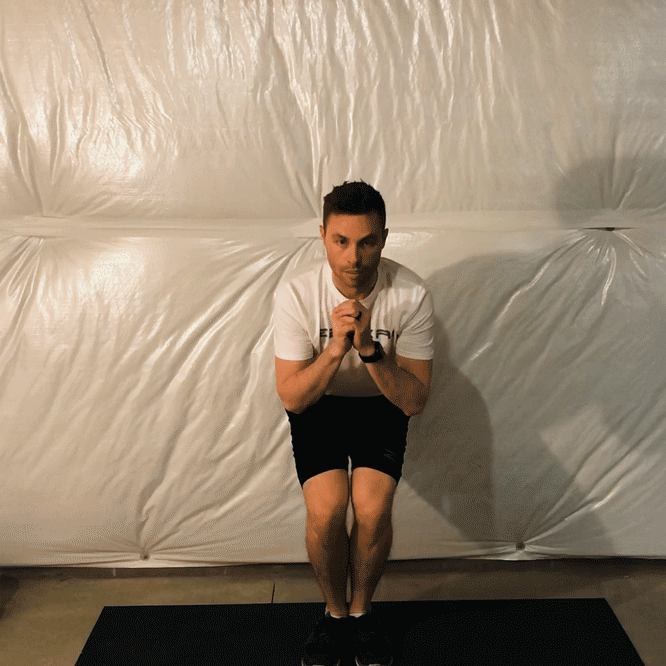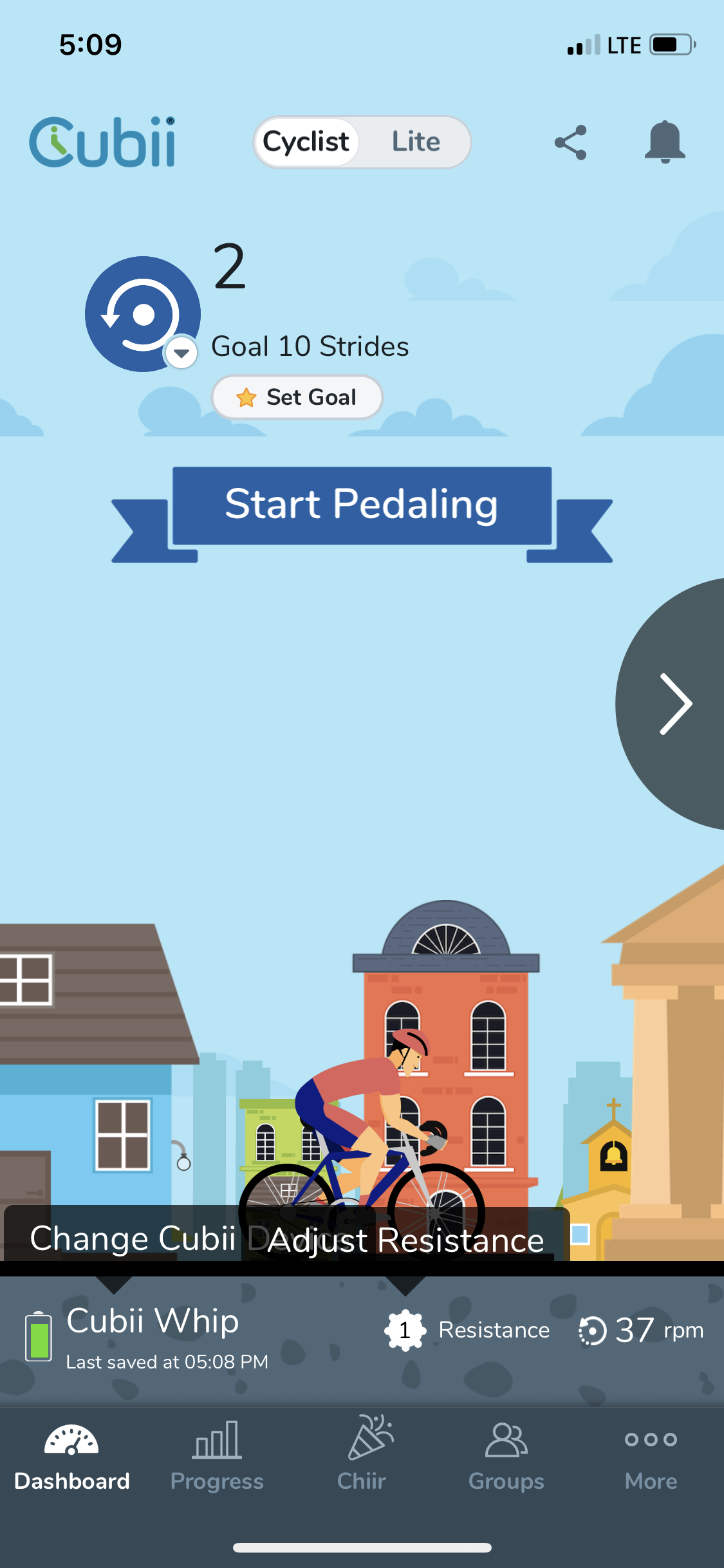Heart Ergo: Exercise
The next time you're at your desk, I want you to think of the Winnie the Pooh theme song.
"I gotta get up, I gotta get going, I'm going to see a friend of mine," but in this case, your friend is called your health and not the lovable Winnie The Pooh. Your health may not be as adorable, but it's the most valuable asset you have.
Moving in any form is better than no movement at all. Whether that involves taking a walk at lunch, rippin' out push-ups, or taking the stairs down to your car at lunch, doesn't matter. What matters is that you're taking steps to better your health and, in turn, better your performance at your desk.
For the final installment of my elemental ergo series, I've brought in an expert and friend Jake Middleton. Jake has been in the Esports wellness game from level one. He's worked with numerous pro teams and is currently the Director of Performance at ADAMAS Esports Performance.
Why Exercise and Movement Matter
Look, movement is essential regardless of your age or profession. There are numerous reasons why movement is vital to your health. So get your notepad out and let's go through them.
Overall health
A sedentary lifestyle has been linked to most of the problems facing western cultures, such as heart disease, obesity, and diabetes, to name a few. Exercise is proven to reduce inflammation, reduce insulin resistance, and keep cortisol levels in check.
Mental Focus
Proper breaks are crucial both for mental and physical wellbeing. A recent study showed taking micro-breaks reduced pain scores and increased mental focus for surgeons. See, it's not brain surgery or rocket science. Take a damn break every 30 minutes and tell me you don't notice a difference.
Improving cognitive function in kids, the elderly and everyone in-between
"In 2019, yet another study, led by a Duke University group, reached a short but informative conclusion: "Aerobic exercise promotes improved executive functioning in adults at risk for cognitive decline."..... Biologically, then, exercise seems to increase blood flow to the prefrontal cortex, shuttling over more nutrients and helping it grow stronger. Meanwhile, connections to the prefrontal cortex become more robust.
This is neuroplasticity at its finest, and it's sending a clear message: if you want a cognitive edge, exercise is essential."
"In 2011, a randomized trial looked at the effects of exercise on the brain function of overweight children. A total of 171 kids between the ages of seven and eleven were selected for the study. Children who exercised scored significantly better than those who did not on tests of executive function, planning, and math. They also had significantly increased blood flow to their prefrontal cortices from Brainwash by Doctors Kristin Loberg, David Perlmutter & Austin Perlmutter
Actual in-game advantages
If you're still wondering how exercise and movement translate to better game performance, look no further than this study that shows improved gameplay.
Decreasing Depression
Exercise has been proven time and time again to help with depression-like symptoms. Whether it's releasing natural endorphins (that fantastic feeling after a workout or run), focusing on a physical task to occupy your mind, or just letting out some frustration after a terrible game, it all is beneficial for your mental health.
The whole picture by Jake
Movement is an essential component of health and performance for humans. The benefits are countless from reducing chronic disease risk to improving brain function. Gaming and office jobs tend to increase prolonged sitting. Without sufficient exercise, we can experience many issues like mental health problems, burnout, increased pain and injury risk, less productivity, and decreased performance outcomes.
Jake has worked with numerous clients in the gaming industry, and he's noticed that...
"They have more energy throughout the day and feel better overall about themselves. I've noticed positive impacts on confidence, self-esteem, and self-efficacy. Clients have noticed similar benefits as well as improving their eating habits and sleeping patterns."
I hope that the studies and insight from above didn't put you to sleep, but sometimes we need to be bombarded with facts before it finally sets it. Some points will hit closer to home for some more than others. Whatever your motivation is, it's time to get rollin'.
How do I start exercising?
Starting on an exercise journey can be daunting at first. There's so much noise out there in terms of "experts," Youtube videos showing the most challenging workouts, or your uncle who saw a weight loss video on his Facebook timeline.
First, I would find an activity that you enjoy and know you can stick to. Activities we enjoy are much easier to stay consistent with, rather than activities we hate. For example, I hate running more than anything in the world. My mind becomes bored quickly, hence why I focus on lifting and HIIT workouts over running.
Whether it's yoga, pilates, HIIT, walking, or lifting, your goal is to start at the foundation. I can't count the number of times patients have come in with pain after trying some YouTube video for advanced workout buffs.
One of my favorite platforms is Fitness Blender because they have a workout video for any genre, any level, any body region, and it's freeeeeeeee. When I first started working out consistently, I found this site. They build on foundations and narrate the exercises as you're doing them to point out areas to be mindful of. This is a significant first step for anyone starting as you continue to learn and grow on your fitness journey.
Jake agrees that starting simple and building on foundations is key.
"If you're just getting into exercise or even starting back up, then focus on setting goals, starting small and being consistent. By starting small, you are doing more activity than you normally do. Rather than going 0-100 real quick, start by adding 15-20 minute workouts and choose activities you would enjoy."
Project LIT
Earlier this year, I developed an exercise protocol called Project LIT. It's based on HIIT exercises that can be done between games or scrims regardless of time or equipment. As we know, physical activity improves multiple mental processes and is a wonderful reset between games.
Here’s a 15 minute HIIT routine I put together
The Cubii
Even while working at our desk, there's a way to promote movement. This little guy is called the Cubii. Think of it as a mini-elliptical that can fit under a desk or next to it (my preference). Full disclosure, I was sent this to test out (review coming soon).
Whenever I'm on a more extended call or watching Twitch at lunch, I'll flip my chair around to jump on the Cubii. It's a fantastic tool because it promotes movement in situations where you would usually be limited to zero activity. It also has an app that tracks your miles and is interactive. Check out the cute little rider below.
For my gamers out there, the Cubii is fantastic between games, watching VODs, or editing. As I've tried to hammer in throughout this article, you perform better when your body is moving.
Heart Rate Variability in Gaming
I wanted to introduce my audience to Heart rate variability (HRV). HRV is a fantastic indicator of determining overall fitness and ability to handle stress load. Jake breaks it down for us here:
Heart rate variability (HRV) is the variance in time between the beats of your heart and is a measure of your autonomic nervous system (ANS). The ANS is composed of the sympathetic nervous system or "flight or fight response" and the parasympathetic nervous system or "rest and digest response." Each of these components are simultaneously competing against each other in the body. When the sympathetic branch dominates, we have increased heart rate and thus decrease in HRV or the time between heartbeats. Low HRV over time indicates the body needs recovery. Prolonged sitting, working, and high-level gaming is stressful and can contribute to a lower HRV. By having HRV data, you are able to make strategic choices about how to balance stress and rest in our lives, including when at a desk. For example, during lower HRV days incorporating lower-intensity movement like walking during periods of sitting can be a form of recovery that increases blood flow and reduces cognitive fatigue, which leads to improved health outcomes.
It may seem counterintuitive, but the more variability of your HRV, the better suited you are to adapt to situations and react at a peak level. Lack of variability means that your sympathetic and parasympathetic are out of balance. The lack of balance is usually due to dominance by the sympathetic system, which is more active with chronic stress.
Breaking it down
High HRV= Solid fitness and balance within your autonomic nervous system (ANS)
Low HRV= Higher stress level, overtrained (grinding), improvement most likely needed in fitness, and ANS out of balance.
What's Controllable for HRV
There are a few factors that you can't control, such as age, gender, and genetics. However, many of them you can:
Getting the proper amount of sleep
Exercising regularly and moving more at your desk (this article you’re reading)
Heart rate variability continues to show massive growth in the traditional sports world. I believe there's significant potential for wearable companies to enter the gaming space. Competitive gaming is all about situational stress management and how the player responds to said stress.
Performance coaches can use the objective metric to show players that they aren't performing at their peak. Once lifestyle changes are made, it is a simple opening of an app to show the improvement objectively, but I'm sure the player will notice subjectively as well.
Finishing up
If you are a regular reader here at FTW, you will know I preach movement in almost every piece of content I make. I'm guilty of not wanting to move as well, especially the weekends, but we always make an effort to play tennis, hike, or walk around the neighborhood. Even these small gestures promote a healthier lifestyle.
There's no perfect place to start your movement journey, but it's essential to start the effort ASAP. As the above studies show, it doesn't matter what age or fitness level you're at; movement is vital for mental performance.
I want to thank Jake Middleton again for providing his many years of experience and insight into this article. I can't say enough wonderful things about this guy who was a pioneer in the space and continues to push the sector. Check out more of his work here along with his Twitter and LinkedIn pages.
I'll close with an important question I asked Jake last week.
Finally, how is it that Dr. Drew is so much better than you in Halo?
Drew is a great FPS player, but when it comes to Halo, unfortunately, suffers from disillusionment. Drew is what the legendary Halo pro Dave Walsh would call his "practice noob."
You hate to see it.











